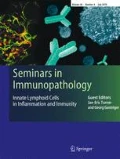Abstract
The issue of beta cell regeneration in human pancreas is probably one of the most controversial aspects of type 1 diabetes research. In this review, we will first describe the known mechanisms underlying beta cell development and expansion in normal human pancreatic development because it is likely that such mechanisms might also play a role in beta cell regeneration. The sensu strictiori definition of beta cells implies replacement of lost beta cell mass by new beta cells. In our discussion, however, we will use the term in a more general way, defining as regeneration the formation of new beta cells, whether or not a loss of beta cells has actually occurred. The potential mechanisms of beta cell regeneration in the human pancreas will be discussed in the second part of this review. In particular, we will analyze beta cell regeneration through proliferation of beta cells, neogenesis from non-beta cell precursors, and transdifferentiation from alpha cells. In the third part of this review, we will explore the arguments for and against the ability of the human pancreas to regenerate functional beta cells in the context of type 1 diabetes and in other pathological conditions.

Similar content being viewed by others
References
(2010) Beta-cell development and turnover during prenatal life in humans. Eur J Endocrinol 162: 559–568
(2004) Nesidioblastosis: an old term and a new understanding. World J Surg 28(12):1227–30
(2006) Beta-cell proliferation is the major source of new pancreatic beta cells. Nat Clin Pract Endocrinol Metabol 2(5):242–3
(2010) Glucose and aging control the quiescence period that follows pancreatic beta cell replication. Development 137(19):3205–13
Expansion of beta cell mass in response to pregnancy. Trends in endocrinology and metabolism. Vol 21 Number 3
(2010) Beta-cell growth and regeneration: replication is only part of the story. Diabetes 59(10):2340–8
Initial results of screening of non-diabetic organ donors for expression of islet autoantibodies. J Clin Endocrinol Metabol 91(5):1855–1861
(2008) Insulin protein and proliferation in ductal cells in the transplanted pancreas of patients with type 1 diabetes and recurrence of autoimmunity. Diabetologia 51(10):1803–13
(2010) Conversion of adult pancreatic alpha-cells to beta-cells after extreme beta-cell loss. Nature 464(7292):1149–54
(2010) Pancreatic β-cell neogenesis by direct conversion from mature α-cells. Stem cells 28(9):1630–8
(2008) Type 1 diabetes: chronic progressive autoimmune disease. Novartis Found Symp 292:85–203
(2003) Fulminant type 1 diabetes: a nationwide survey in Japan. Diabetes Care 26(8):2345–52
(2005) Sustained beta cell apoptosis in patients with long-standing type 1 diabetes: indirect evidence for islet regeneration? Diabetologia 48(11): 2221–8.
(2010) Dimorphic histopathology of long-standing childhood-onset diabetes. Diabetologia 53(4):690–8
Author information
Authors and Affiliations
Corresponding author
Additional information
This article is published as part of the Special Issue on Immunopathology of the Pancreas in Type-I Diabetes
Rights and permissions
About this article
Cite this article
Gianani, R. Beta cell regeneration in human pancreas. Semin Immunopathol 33, 23–27 (2011). https://doi.org/10.1007/s00281-010-0235-7
Received:
Accepted:
Published:
Issue Date:
DOI: https://doi.org/10.1007/s00281-010-0235-7




